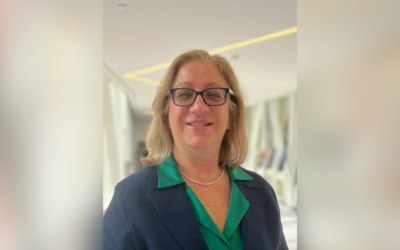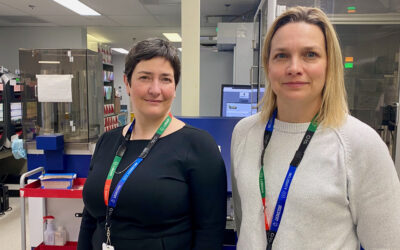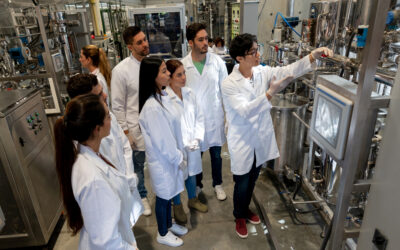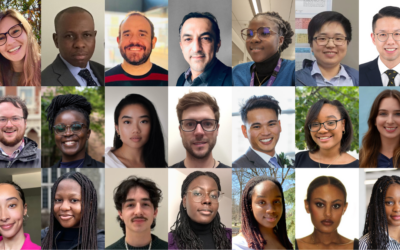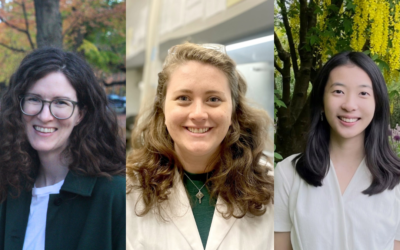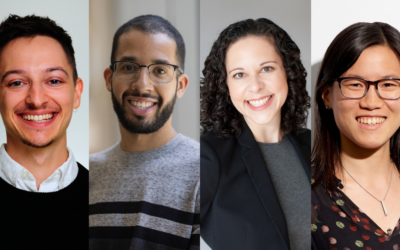News & Events
Events
News
Nourishing young minds: Exploring the link between adolescent mental health and the gut microbiome with Susan Campisi
May 28, 2024 By Francesco Zangari Eating is a fundamental aspect of the human experience, transcending nutrition to encompass social, cultural, and psychological dimensions. Emerging at the intersection of nutrition and psychology, the emerging field of nutritional...
Collaborative $19 million initiative aims to strengthen Canada’s pandemic response
Anne-Claude Gingras (left) and Jennie Johnstone. Photo credit: Sinai Health May 7, 2024 By Jovana Drinjakovic As we navigate the aftermath of COVID-19, the inevitability of another pandemic looms over us — it’s a matter of when, not if. Recognising this urgency, the...
Canadian Hub for Health Intelligence and Innovation in Infectious Diseases awarded $72 million to strengthen talent development and health intelligence
Photo credit: Hispanolistic via Getty Images May 6, 2024 By Betty Zou Four research programs in the Canadian Hub for Health Intelligence and Innovation in Infectious Diseases (HI3) have received $72 million in federal funding from the Canada Biomedical Research Fund...
EPIC announces recipients of 2024 Inspire Summer Studentships and Researcher Mobility Awards
April 30, 2024 By Betty Zou The Emerging and Pandemic Infections Consortium is investing over $120,000 to support undergraduate students from underrepresented groups and enable immersive training experiences for graduate and postdoctoral trainees. The funding is being...
Contest winners find new, fun ways to explain vaccine science
From left to right: Stacey J. Butler, Aideen Teeling, Abigail Netanya Ngan April 26, 2024 By Betty Zou and Ishani Nath Aliens, wizards, ninjas and an inquisitive bunny named Muffin. These are just a few of the characters the Centre for Vaccine Preventable Diseases...
Fighting malaria with math: why one U of T student is studying parasite evolution and what it could mean
April 25, 2024 By Betty Zou This World Malaria Day, a University of Toronto PhD student is shedding light on a poorly understood phenomenon that could impact vaccination strategies for malaria and other infectious diseases. The phenomenon, called vaccine-driven...
Allison McGeer inducted into the Canadian Medical Hall of Fame
April 15, 2024 By Jenni Bozec “One of the great things about my career has been seeing infection prevention and control in hospitals grow, seeing more people join the field and the good things that are coming out of that,” comments Allison McGeer as she...
Heart-on-a-chip model created by U of T researchers uncovers insights into heart problems caused by COVID-19
From left to right: Milica Radisic, Rick Lu and Claudia dos Santos March 27, 2024 By Betty Zou University of Toronto researchers have created a unique heart-on-a-chip model that is helping untangle the causes of COVID-19-induced heart inflammation and uncover...
Four U of T PhD graduates recognized as Future Leaders in infectious disease by the Emerging and Pandemic Infections Consortium
(l-r) Eric Armstrong, Jonathan Burnie, Catharine Chambers, Pailin Chiaranunt March 19, 2024 By Betty Zou The Emerging and Pandemic Infections Consortium announced today the winners of the 2024 Future Leaders Prizes. The $5,000 cash prizes celebrate the most...


